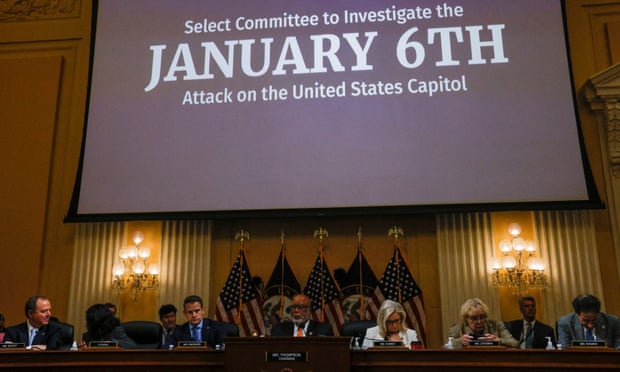Household Economics: Where’s My $200K?

Image by CHUTTERSNAP.
At some point, you coalesce sensation into a concept of identity. You are something and you are not other things. You are what you can control and you cannot control anything outside yourself. You cannot even control most of what happens inside what you consider to be you. You are servant to your respiration, your heartbeat, your bowels, and you have little control over them. Yet you consider your skin and everything it contains to be “you.” Everything outside that perimeter is “not you.”
As a creature, you have come to accept the requirement to absorb that which is not you in order to continue living. You must take in air rich in oxygen and expel air rich in carbon dioxide. If you fail to take in air or expel air for even a few minutes, your body will fail and consciousness will cease. The same is true if you fail to take in liquid for as little as a week, or fail to take in food for as little as a month, or fail to take shelter for as little as three hours.
None of the things you need in order to survive are yours. You must take that which is not you, convert it to you, and discharge the byproduct. You are essentially conditioned to this ritual from birth. By the time you achieve consciousness, you have become resigned to the rituals of eating, drinking, sleeping, shitting and peeing. It takes much longer to realize that your food, water and shelter is not yours, belongs to someone else, and you are expected to pay for it with your labor.
There is no household where children are not expected to contribute effort in exchange for support. Even Helen Keller had chores, as something is expected from everyone in return for the provision of the basics required to live. Most of a household’s efforts go into providing the food, water, and shelter required to sustain life and everyone in a household is expected to contribute what they can.
***
As the fifth child of nine, I was born into a large household with established rules of behavior, seniority, rank, privileges, expectations, responsibilities, and punishments. Pain is a way to become aware of you. After you experience hunger or abandonment, you become painfully aware your body has needs. Before I even became conscious of my identity, I became aware of the pain of being spanked, pinched, scratched, bitten, and hit. This is how the infant me formed a concept of my body.
I had chores before I knew what chores were. Of course I eagerly wanted to participate in whatever activity my siblings were doing; I never considered it work. If you could hold things you could be useful, and you often got to share in chores like getting stuff out and putting stuff away. I was taught how to change diapers at the age of three.
It takes years to understand that you are being subsidized by your parents and you’re expected to “do your part.” I was likely getting an allowance at the age of four. Once money enters into a child’s consciousness, everything changes. A monetary value could be calculated for all the food and beverages you consume; all of it cost money, none of it was free. This guilt, this stone, was laid upon me as a child: that I consumed more than I contributed and I would unlikely ever be able to pay back what I took.
My Mother did not demand a certain amount of effort so much as a certain attitude. When she asked you to do something, you did it, you did not ask why. Obedience was required and enforced by my Father who would inflict corporal punishment at the slightest sign of disrespect for my Mother. Fortunately, before I hit puberty, my Mother staged a coup and took over all authority for corporal punishment from my Father. After that, I didn’t fear my Father so much as I feared my Mother unleashing my Father, which she sometimes did.
Because there were so many of us, property seemed somewhat communal growing up. Most of my clothes were hand-me-downs from my older two brothers on their way to my younger two brothers. Shoes, boots, galoshes, cleats, jackets, coats, ice skates and bumbershoots were all somewhat communal. At first, your room isn’t your room, your bed is not your bed, none of the furnishings are yours. You have a drawer; what’s in the drawer is yours.
***
The funny thing about family economics is they never have been. It’s always rigged and there is little transparency into the sources and uses of funds. It’s individual economics stacked up and a myth that the biological family extends to the financial family. Has there ever been an estate equally shared? Only if it is nothing.
An equal sharing of the property of the planet would have resulted in every family having their own house, one car per outside worker, and all the food, clothing, schooling and medical care their children are likely to need while growing up. Don’t believe me? Let’s do the math. The wealth of the world today divided by the population yields $198,000 per person. No kidding. That’s enough.
If the land had been shared fairly and each child was given an equal piece and their children were given equal pieces, today we would all have a big enough piece to live on comfortably and to give to our children. The problem is that I must re-buy the land my parents bought and my children must buy their own. What happened to the wealth?
The wealth became infrastructure for the wealthy. My family’s wealth was invested and crashed in the 1970s and disappeared. It was absorbed by the machine. At one time, my parents had enough in the stock market to pay for all of us nine kids to go to college. Then it crashed to 10% of its value before they could sell. About the time I went to college, the wealth was gone. I took out loans.
The stone I started in consciousness with — that I consumed more than I contributed — just kept getting bigger instead of smaller. Even bigger when I worked full time. Even bigger after bankruptcy. Still with me today. It will consume most of my estate when I die. My children will likely inherit only photographs and letters.
***
My grandfathers both had family businesses and neither their spouses nor their children shared equally the family wealth. There were favorites among equals and everyone’s share was conditional and the conditions were never clear. The brothers that entered the family business and those that didn’t regarded each other with suspicion. Neither of my grandmothers knew exactly how much money came in from what source and it seemed to me they preferred not to know.
When my grandparents died, the transfer of wealth was opaque to me, a mysterious and lengthy process that made siblings adversaries, resulting in a frenzied and unseemly division of physical property such as clothing, jewelry, furniture, cars, while awaiting a “final settlement” of stocks, bonds and cash. The biggest change for me is that for the first time in my life I saw my Mother with her own money that did not come through my Father. She went on a cruise my Dad had no interest in, and ever since she called her own shots. Independent money can do that. We should all have independent money.
I’m married to an artist named Deborah O’Keeffe, was previously married to a florist named Storme O’Keefe, and I was never transparent with either of them about my money and they have never been transparent with me. Storme and I tried every which way to manage the household finances but no matter how we worked it, we both ended up broke. We tried separate bank accounts and one joint bank account and only using cash and ended up with one household account, two separate personal accounts, and two separate business accounts.
That’s the same system I started with when I married Deborah O’Keeffe: five bank accounts, 2.5 accounts each. It has since swelled to as many as 10 accounts straddling several banks. We try to roughly split the bills and to not live too richly when the other has no independent funds. Both households seemed to achieve financial balance but lacked transparency. It’s easiest to keep track when it adds up to nothing, the ins and outs somehow matching, the debt slowly getting paid down.
***
There was no obvious pooling of funds in my Father’s family or my Mother’s family, as near as I could tell. Siblings refused to tell other siblings how much they were being paid. The children all moved into their own housing and out of the family house as soon as they got married. As far as I know, none of my six uncles ever sent money back home, and my grandparents managed with their own ample resources.
It was only in times of crisis when resources were pooled and those who were obviously doing well were expected to chip in disproportionately to those with less. But other than an emergency, there was no effort to balance the lifestyle of those who did very well and those who didn’t. One of my uncles was a lawyer, and his brother was considered intellectually challenged. His brother was given a job and a paycheck, but he lived long years with his mother before he married and established an independent household. There is no way he was ever given an equal share of the wealth or had his income topped up by his wealthy brothers. Inequality, even within the family unit, is rife.
My parents were wealthy once, but nine kids took it out of them. They were both children of wealthy families in Grosse Pointe, Michigan. My Italian grandfather was in the produce business. My Irish grandfather was in insurance by way of being a beer wholesaler and distributor. My father and his two younger brothers worked loading and unloading beer trucks as teenagers. Both grandfathers owned businesses and the wealth was stuck in the equity of an ongoing operation. The only way to extract it is to get out.
There is a joke, a variation of which is, if you want to make a million in publishing you need to start with two million. The only way independent book publishers make money is by selling the company and getting out. Both my grandfathers sold their businesses and their kids found jobs elsewhere. No pooled resources. No sharing the wealth. No sharing even of the information about how much wealth there was and where it was located.
I have seen life practiced pretty much this same way wherever I have gone. We are all family. We come to each others’ aid in times of crisis. In those times, the ones with the most usually contribute the most because they can. But the rest of the time the inequality is allowed to continue unabated. One brother might buy seven houses while another struggles to make rent. In the absence of pressing need, the accumulation of unpressing needs to dangerous levels continues unchecked.
***
What is fair in the distribution of income and wealth? In a very real sense, we each are entitled to our fair share of all assets in existence. If you could not prove ownership or title to anything — and all titles are built on theft from the commons — “our share” would be the wealth of the world divided by the population. In 2020 that was 1,540 trillion dollars divided by 7.753 billion people = $198,632.79 per person. Where’s my $200K?
$200K per person is the equivalent of nearly $500,000 per household. This is our wealth, held by corporations and states. If the state simply paid a low 2% rate of interest on the wealth of ours which it holds, households would receive $10,000 a year as their rightful compensation for the use of their wealth. Another fairer distribution would be to give the people half the profit made in a year, and let the corporations keep the other half. It’s the least corporations can do in exchange for using our wealth, our courts, our legal system, our transportation system, our land, our water, our air, our bandwidth.
You could consider the “owners” of all this wealth as merely custodians, responsible for safeguarding our wealth, investing our wealth, distributing the income, and distributing the wealth. Our custodians should be trying to grow the wealth for all of us, and I’m in favor of rewarding them for doing so. Instead, they’re taking wealth away from all of us and heaping it upon a select group of families who live without limits.
Worse, they are using our wealth to shield themselves from regulation, taxation, and competition, so they can continue to engage in activities they know are harmful to all of us for the short term benefit of a select few. They call this a market system but it is nothing close. Under a market system, the price of coal would include the cost of cleaning the air after burning it. Had that ever been the case, the shift from coal to oil to natural gas to emissions-free, renewable energy would have concluded in the 1920s.
Instead, robber barons old and new have suppressed information about the harmful consequences of using their products. They have built phony supply chains full of mysterious intermediaries to distance the profits they make from the harmful costs of their operations. They select the regulators who pass judgment on their operations. If they ever face a negative judgment, they select presidents and prime ministers to get them off the hook.
In 2022, when U.S. President Joe Biden asked the oil and gas companies to take it easy on the profit-taking as the average retail price of gasoline in America breached $5.00 a gallon, the oil company lobby spit back a list of reasons for the high price of gas besides their outrageous, voracious profit-taking. Any real presidente with any real strength would not take shit from the oil lobby and would find a way to windfall tax their asses to provide free electric cabs for the masses.
***
The world has entered End Stage Capitalism, where the growth keeps concentrating, everyone except the super rich have less until we all live hand-to-mouth, and every day it gets hotter and harder to survive. We will pray for some super genius to invent something that takes back all the carbon in the air, the wealth of all the people burned up for the benefit of a few.









